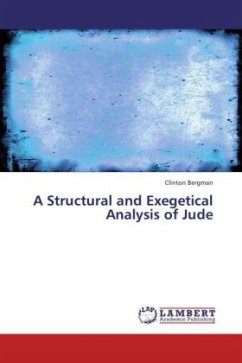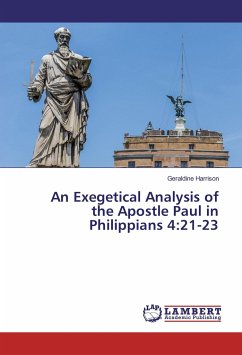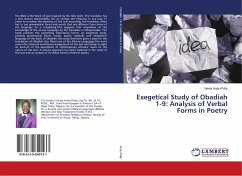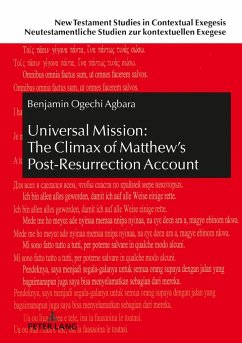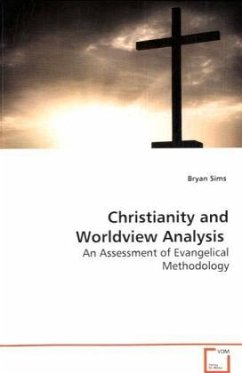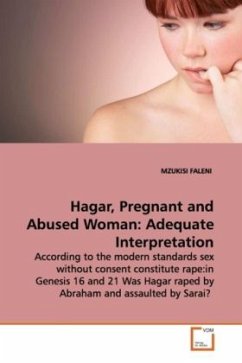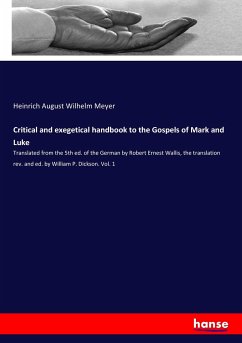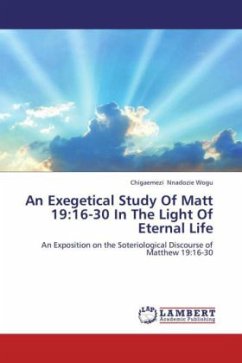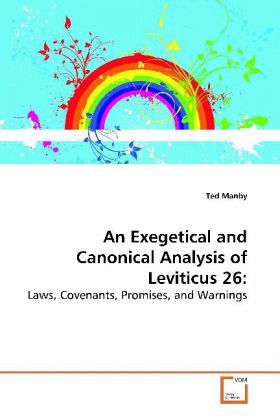
An Exegetical and Canonical Analysis of Leviticus 26:
Laws, Covenants, Promises, and Warnings
Versandkostenfrei!
Versandfertig in 6-10 Tagen
52,99 €
inkl. MwSt.

PAYBACK Punkte
26 °P sammeln!
It appears that many Old Testament writers are usingthe same promises and warnings as they seek toenforce the Mosaic Covenant on the people of Judahand Israel. Thus, a familiarity with the formercanonical material is essential to properly exegeteother biblical sections where these also appear. Thefirst chapter in the Hebrew canon where the blessingsand curses surface is Leviticus 26. Therefore, allforty-six verses of Leviticus 26 are carefullyanalyzed in this work. The topics of the Mosaic law,the Sabbath, the Abrahamic and Mosaic covenants,promises for obedience, warnings for rebellion, andth...
It appears that many Old Testament writers are using
the same promises and warnings as they seek to
enforce the Mosaic Covenant on the people of Judah
and Israel. Thus, a familiarity with the former
canonical material is essential to properly exegete
other biblical sections where these also appear. The
first chapter in the Hebrew canon where the blessings
and curses surface is Leviticus 26. Therefore, all
forty-six verses of Leviticus 26 are carefully
analyzed in this work. The topics of the Mosaic law,
the Sabbath, the Abrahamic and Mosaic covenants,
promises for obedience, warnings for rebellion, and
the future restoration of Israel are all discussed in
this study. Deuteronomy 28 32 similarity with
Leviticus 26 is charted throughout this work.
Finally, the Protestant tradition regarding the moral
law, the Sabbath, and the use of Historical Theology
are discussed. This study will be especially useful
to preachers, Bible teachers, and Bible scholars who
will benefit from this analysis of Leviticus 26
because it is a critical background text for many of
the former and latter Old Testament prophets who used
this text in their inspired writings.
the same promises and warnings as they seek to
enforce the Mosaic Covenant on the people of Judah
and Israel. Thus, a familiarity with the former
canonical material is essential to properly exegete
other biblical sections where these also appear. The
first chapter in the Hebrew canon where the blessings
and curses surface is Leviticus 26. Therefore, all
forty-six verses of Leviticus 26 are carefully
analyzed in this work. The topics of the Mosaic law,
the Sabbath, the Abrahamic and Mosaic covenants,
promises for obedience, warnings for rebellion, and
the future restoration of Israel are all discussed in
this study. Deuteronomy 28 32 similarity with
Leviticus 26 is charted throughout this work.
Finally, the Protestant tradition regarding the moral
law, the Sabbath, and the use of Historical Theology
are discussed. This study will be especially useful
to preachers, Bible teachers, and Bible scholars who
will benefit from this analysis of Leviticus 26
because it is a critical background text for many of
the former and latter Old Testament prophets who used
this text in their inspired writings.



